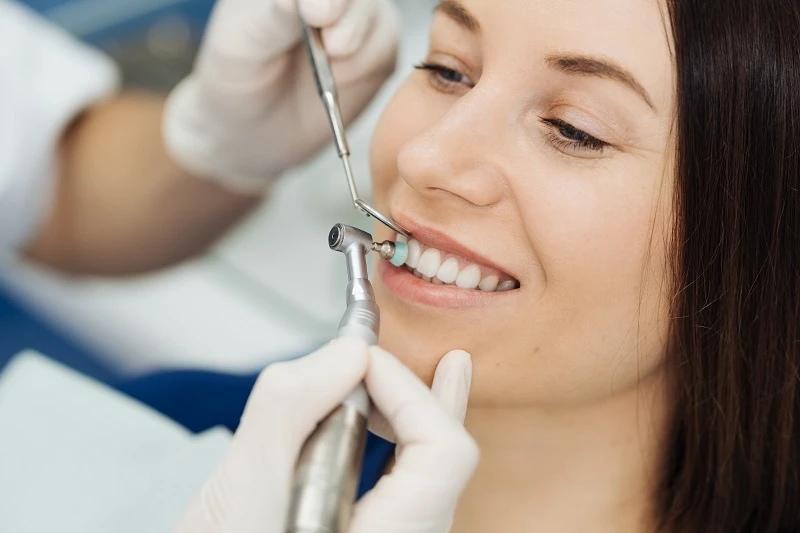Dental implants undoubtedly provide an effective and lasting solution for missing teeth. They mimic the natural structure of teeth, offering durability and functionality. However, dental implant failure can sometimes occur despite their high success rates.
Dental implant failure can arise from various factors such as infection and poor osseointegration, which are the most common. Other significant reasons may include occlusal overloading, habits that harm oral tissues, and improper implant selection.
Missing teeth can affect your smile, confidence and oral health. The Plano dental implants provide a durable, natural looking solution to restore your smile. They act like real teeth and help prevent bone damage over time. Sometimes, implant surgery can be unsuccessful for various reasons. Therefore, understanding the most common cause of implant failure is crucial for both dentists and patients.
Causes Of Early Dental Implant Failure –
Early dental implant failure refers to cases where the implant fails within the first few months after the surgery. Several factors can contribute to this type of failure, including.
1. Poor Osseointegration
Osseointegration is the process that describes the fusing of dental implants with the jawbone. If this integration does not occur properly, the implant may not be stable enough to support the prosthetic tooth. Poor osseointegration can result from insufficient bone density, smoking, uncontrolled diabetes, or certain medications.
2. Infection
Infections can significantly impact the success of dental implants. Bacterial infections can occur during or after implant surgery. Patients with a history of periodontal disease or poor oral hygiene are at a higher risk of developing infections that can lead to implant failure.
3. Surgical Complications
Surgical complications, such as damage to surrounding tissues or nerves, inadequate implant placement, or improper technique, can lead to early implant failure.
It’s important to note that early implant failure is relatively uncommon, and most implants are successful. However, thorough patient evaluation, treatment planning, and adherence to proper surgical and maintenance of oral hygiene are essential to minimize the risk of early implant failure. To avoid dental implant failure, you must know the dos and don’ts after implant surgery to relieve your pain and discomfort.

What are signs of dental implant failure?
If you are suffering from early or late-stage dental implant failure, symptoms of a complication include:
- difficulty in chewing
- gum inflammation
- gum recession
- Increase in swelling
- loosening of an implant or a replaced tooth
- severe pain or discomfort
Causes Of Late Dental Implant Failure
Dental implant failure typically occurs months or even years after implant placement. Several factors can contribute to this type of failure, including –
1. Peri-Implantitis
It is a condition that follows infection and inflammation around the implant site. It is like periodontal disease, affecting the tissues surrounding the implant. Poor oral hygiene, smoking, and certain medical conditions can increase the risk of developing peri-implantitis. It can ultimately lead to an increase in the implant failure rate.
2. Overloading
Dental implants require a certain amount of time to heal and integrate with the jawbone. Excessive pressure on the implant during the healing process can disrupt the osseointegration, leading to a failure of dental implant. It can occur due to teeth grinding (bruxism), chewing hard or sticky foods, or trauma to the implant area.
3. Bone Loss
The stability of dental implants relies on adequate bone support. However, bone loss can sometimes occur around the implant, compromising its stability. It can happen due to poor oral hygiene, periodontal disease, or systemic conditions that affect bone health.
Though dental implants are generally successful in the long term, proper oral hygiene, regular dental check-ups, and following post-implant care instructions are essential. These are to maintain the health and longevity of dental implants.
Regain Teeth Functionality And Smile With High-Quality Dental Implants
Our dentists understand the importance of both aesthetics and functionality. They will help you to regain the confidence to smile, speak, and eat without limitations. Schedule your consultation with our dentists to reclaim your beautiful smile.
FAQs on Reasons Behind Failure Of Dental Implant
What is the most common cause of dental transplant failure?
The most common cause is peri-emplantitis which is an inflammatory condition. It affects soft and rigid tissue around the implant. It is usually caused by poor oral hygiene and leads to bone loss around the transplant.
Can smoking cause dental transplant failure?
Yes. Smoking increases the risk of transplant failure by reducing blood flow, reducing treatment, and increasing the possibility of infection.
How does transplantation of bone loss contribute to failure?
Successful implants require a strong, healthy jaw. If there is insufficient bone density or volume, the transplant may not be properly integrated, which may cause instability and final failure.
Is it a risk factor for poor oral oral hygiene transplant failure?
Yes, without good oral hygiene, plaque can cause buildup infection and inflammation, compromise the stability of transplantation and lead to failure over time.
Can systemic health status affect the success of dental transplant?
Yes, conditions such as uncontrolled diabetes, autoimmune disease, or osteoporosis can obstruct healing and bone integration, which increases the chances of transplant failure.
